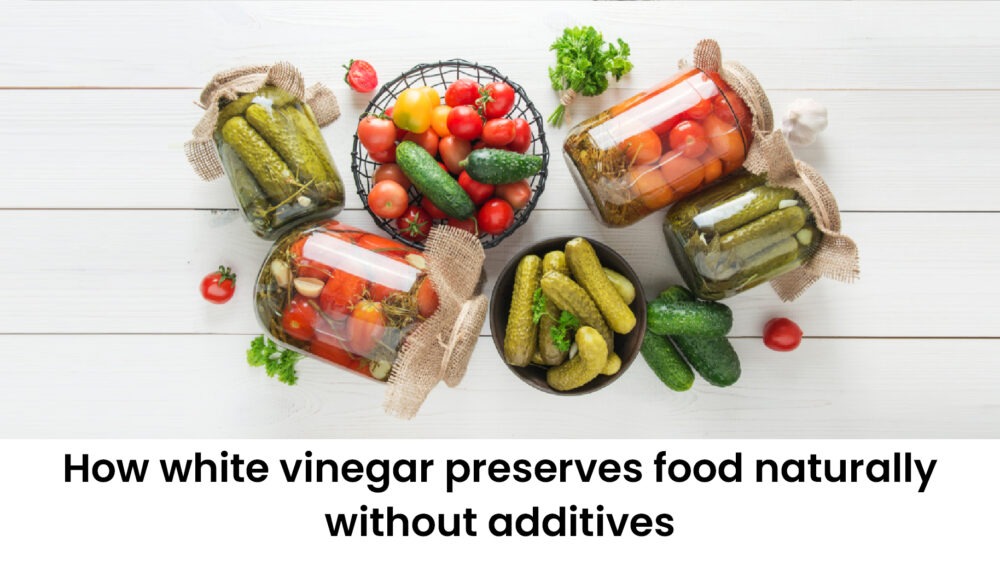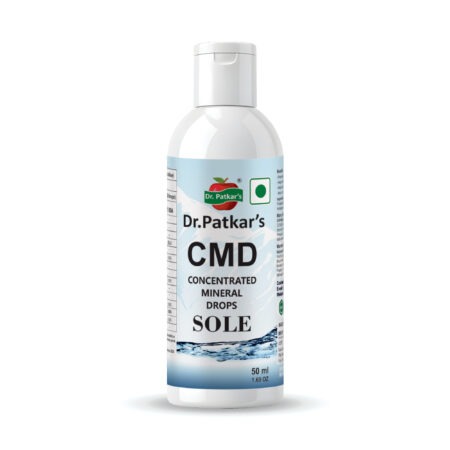How White Vinegar Preserves Food Naturally Without Additives

In the quest for natural food preservation, white vinegar has stood the test of time. This kitchen staple is not just a cooking ingredient; it’s also a powerful natural food preservative that extends the shelf life of foods without the need for artificial additives or chemicals. But how does white vinegar for food preservation work? Let’s dive into the science of vinegar preservation and the benefits of using vinegar as a preservative.
The Science Behind White Vinegar as a Preservative
White vinegar is primarily composed of acetic acid and water. Acetic acid is a natural byproduct of fermentation, giving vinegar its characteristic sour taste and strong antimicrobial properties. This acid plays a key role in natural food preservation by:
- Lowering pH Levels: The high acidity of vinegar creates an environment that is inhospitable to bacteria, mold, and yeast, preventing food spoilage.
- Inhibiting Microbial Growth: Acetic acid disrupts the metabolism of harmful bacteria, slowing down or completely halting their reproduction.
- Acting as an Antioxidant: White vinegar can help prevent oxidation, which causes food to deteriorate over time.
View the product: Dr.Patkar’s Naturally Brewed White Vinegar
How White Vinegar is Used for Preserving Food
White vinegar is widely used in food preservation methods due to its effectiveness and versatility. Some of the most common applications include:
1. Pickling Vegetables
Pickling with vinegar is one of the oldest and most popular methods of preserving food. Cucumbers, carrots, onions, and other vegetables are soaked in a vinegar-based brine, which not only preserves them but also enhances their flavor.
2. Preserving Fruits
While fruits are naturally high in sugar, they can still be preserved using white vinegar. Vinegar for fruit preservation is often used in chutneys and fruit preserves to maintain freshness and prevent mold growth.
3. Extending the Shelf Life of Dairy Products
Adding a small amount of white vinegar to dairy products like milk can prevent spoilage and increase their shelf life. It is also used to make homemade cheese by curdling milk naturally.
4. Meat and Fish Preservation
Marinating meats and fish in vinegar for food preservation helps slow bacterial growth while tenderizing the protein, making it a double-duty preservative and flavor enhancer.
5. Cleaning and Disinfecting Food Surfaces
Apart from preserving food directly, white vinegar as a natural disinfectant is an excellent cleaner. It can be used to sanitize cutting boards, countertops, and food storage containers, ensuring a safe environment for food preparation.
Benefits of Using White Vinegar for Food Preservation
- No Artificial Additives: Unlike store-bought preservatives, vinegar for food storage is 100% natural and free from synthetic chemicals.
- Enhances Flavor: Vinegar for pickling and preserving imparts a tangy taste to preserved foods, making them more delicious.
- Affordable and Readily Available: White vinegar for food safety is inexpensive and found in almost every household.
- Eco-Friendly: Using vinegar as a preservative reduces reliance on chemical preservatives that may be harmful to health and the environment.
White vinegar is a time-tested, natural preservative for preserving food safely and effectively. Whether you’re pickling vegetables, extending the shelf life of dairy, or marinating meats, white vinegar offers an easy and chemical-free way to keep food fresh for longer. By incorporating white vinegar for food preservation into your routine, you can enjoy healthier, additive-free meals while reducing food waste.
So, the next time you reach for white vinegar in your kitchen, remember—it’s not just a condiment; it’s nature’s own preservative!
View the product: Dr.Patkar’s Naturally Brewed White Vinegar




